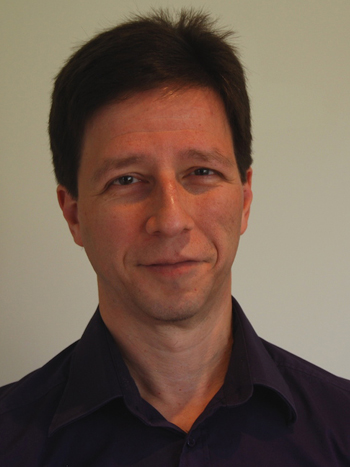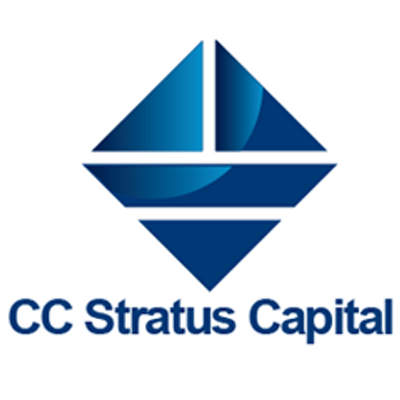PV LP Q&A Interview with Richard Reiner
Dr. Richard Reiner is a serial entrepreneur and company builder. Today, Richard is Founding Partner at CC Stratus Capital, an innovative investment firm that helps early-stage technology companies succeed in fast-growing markets through direct investment and hands-on assistance.
Richard is active in the global tech ecosystem as an executive, investor, mentor, and Board member with many high-growth companies at the intersection of security, cloud, and mobile, the same space in which he’s built and successfully exited several companies. He holds a PhD in Formal Logic & Computability, and holds numerous patents in the fields of cloud and software security. He also climbs the occasional mountain.

Richard Reiner
Founding Partner
Richard Reiner is active in the global tech ecosystem as an executive, investor, mentor, and Board member with many high-growth companies at the intersection of security, cloud, and mobile, the same space in which he’s built and successfully exited several companies. Today, Richard is Founding Partner at CC Stratus Capital, an innovative investment firm that helps early-stage technology companies succeed in fast-growing markets.
Q: What is your technology investment thesis? How does PV fit in?
A: or me, PV is a way for me to diversify into some other tech sectors that are not the ones I’m investing in personally. The cheques that I write directly into companies are very early-stage and within sectors that I know well because I’ve typically operated them in the past. However, there are lots of great companies that aren’t in IoT security, for example. PV is one way of getting exposure to those companies.
There are such great companies these days in Canada, and while I write personal cheques into companies where I feel I can add the most value, I am also very interested in gaining exposure to companies that are outside of my area of expertise.
Q: You have successfully built and exited three high-growth companies. What was the largest challenge you endured in scaling these companies?
A: One of the biggest challenges when you reach a certain scale and you are building companies that are based in Canada is the availability of talent. Engineering talent is abundant, but in some of the other key functional areas such as sales, bus-dev, corp-dev, and marketing it can be difficult to find those people.
Locally in Canada, there comes a stage when a company needs to have some operations in the Bay area and maybe in other places internationally. So that is part of the solution. However, those people come at 2-3x the cost because the cost of living there is so high. Really building the right team around the organization in order to execute on the company’s mission is challenge number one.
In the case of all of my companies, we were able to get all of the engineering talent that we needed locally. We didn’t have too much difficulty getting senior technical talent but building out and finding individuals with the right experience set and mindset in core areas such as bus-dev, corp-dev, enterprise sales, and marketing were significant challenges for all of those companies.
Q: What were your pre-determinants of exiting? Was your exit strategy planned from the beginning, or did it evolve during or near the end?
A: In each of those companies the situations were different, but we had a view as to who possible acquirers might be for each.
Really good companies are bought, not sold. A company is not sold as a result of a decision of the founder to go and sell their product/ the company, but rather because value has been created and interest starts coming in. Having said that, it’s challenging to prepare for this kind of catalyzing event. Once you receive serious inquiries and are ready to entertain the process, you have to mobilize your team to run the process and see where the greatest value can be realized. During this process you always learn new things. For example, I always thought company X would be interested but as it would turn out they actually decided to go in a different direction, while companies Y and Z appeared out of the blue wanting to work with us to gain entry into our space. There are always surprises.
They say every house is different when you’re shopping for real estate, and similarly, every company is different. And maybe in more profound ways than houses. A company is a machine for bringing some product or service into a market and because every product, market, competitive dynamic, and team is different, there is a huge amount of variability.
Q: You have said that you climb the occasional mountain. What parallels can you draw between that physical challenge and business?
A: The main thing involved in serious mountaineering is an enormous amount of really hard work and significant amounts of pain. There is no way to circumvent that. On your last day when you are going for the summit, you have to drag yourself out of bed at midnight in -40*C weather to complete the journey before 7am. Along the way there are all sorts of traps and crevasses that you could potentially fall into.
I think that, at some level, there is a parallel there between the enormous amounts of hard work and the significant amounts of pain that it takes to build a company. I’m not sure of what the crevasses might correspond to, but there certainly are a tremendous number of pitfalls that a company can succumb to.
If I think about my first company, we operated right through the dot com bust. We started the company a few years before and didn’t sell until after, and that was a near death experience for the company. I didn’t sleep well for a year – maybe two. It really felt like life and death. When it’s your first business, especially, your identity and the identity of the company are so blended together that if the company is taking an existential risk, it almost feels like it’s an existential risk in your personal existence. In a way, the sheer terror that you can experience is a parallel to mountaineering.
“I think great companies come out of solving real problems.”
– Richard Reiner
Q: Your firm, CC Stratus, is strategically concentrated on early-stage technology companies in the areas of cybersecurity, Blockchain, identity, and IoT. What do you do for these early stage companies?
A: CC Stratus is primarily a personal investment vehicle, meaning I write cheques. But I tend to be very active, so those cheques always come with a working relationship. That formally could be a board or advisory role, but normally if I am investing in a company I want to be having a conversation with the management team at least once a week so that I can immerse myself in the business with the team. I try to keep the number of companies that I’m engaged with small enough so that I can play a more active role and make meaningful differences.
Q: What attributes do you feel are the most important in a successful leader? What sets apart a good entrepreneur from a great entrepreneur?
A: I wish I knew the magic formula for that. There are a few things that are indicative of greatness or the potential for greatness. I think great companies come out of solving real problems. So, a great leader for a given business might not be a great leader for another. A great leader is someone that has a really deep understanding of the problems that they are solving and the landscape around them. It’s very difficult to come straight out of school, pick something that you haven’t lived and start a business that’s going to be a brilliant success. It can be done but you’ve got to have a prodigious learning curve to make that possible.
Facebook is a good example. The success of that company was born out of someone identifying an issue while still in school – no technology to bring people on campus together – and setting out to solve it.
I also think having an incredibly step learning curve – like being the fastest learner you’ve ever met – and having a certain tolerance for uncertainty is imperative. The kind of person who just keeps gathering information almost indefinitely hoping to come up with a perfect rational decision is not going to lead a company to greatness. Great leaders make bold decisions under conditions of uncertainty, and are also willing to change their minds if they were wrong. So, there’s a certain level of humility that great leaders possess. You’ve got to be the first one to say, “holy cow, boy did I get that wrong… let’s fix it”. You can’t be the type that gets into an emotional funk about the mistake, you’ve just got to buckle down and fix it.

About CC Stratus Capital
CC Stratus is an innovative investment firm that helps early-stage technology companies in cybersecurity, Blockchain, identity, and IoT succeed in fast-growing markets through direct investment and hands-on assistance.
Visit the CC Stratus Capital website.
